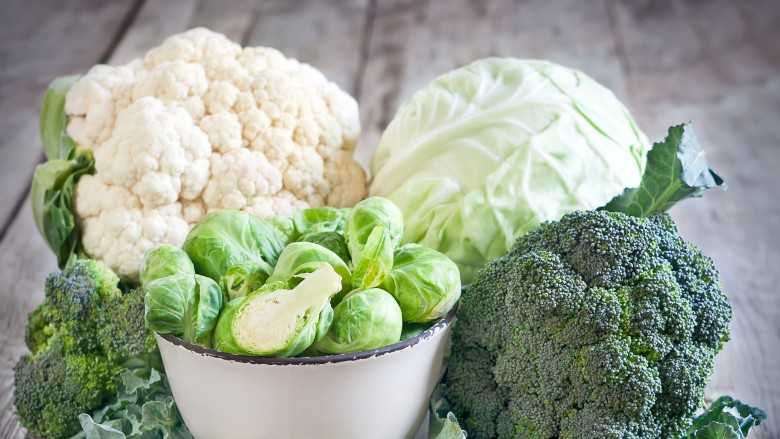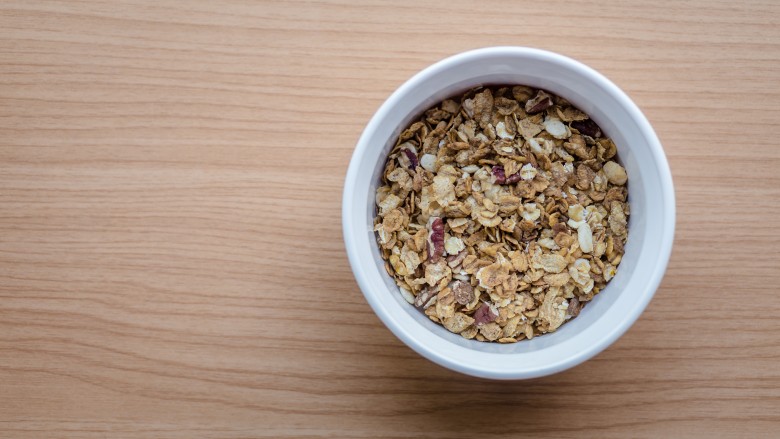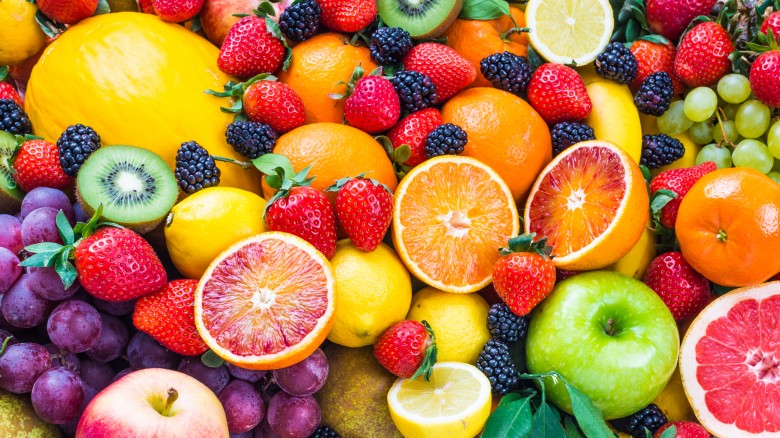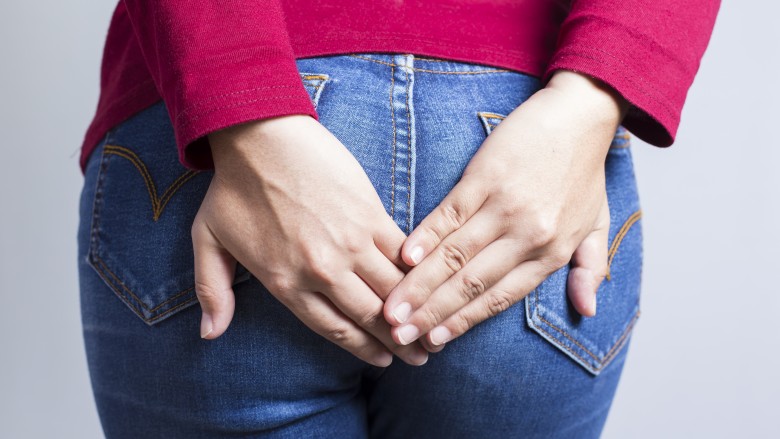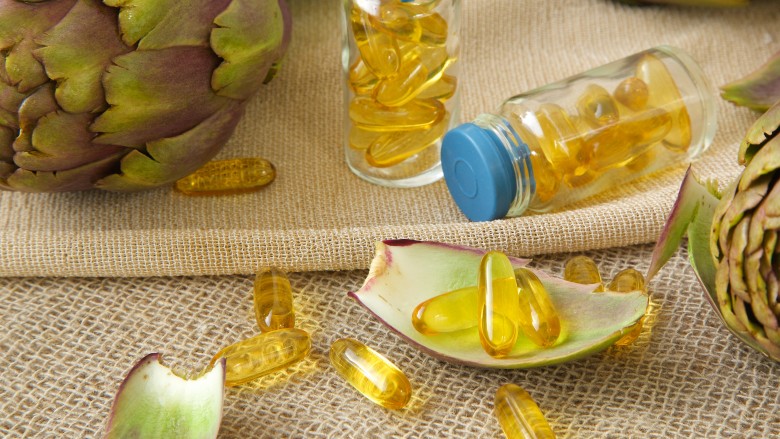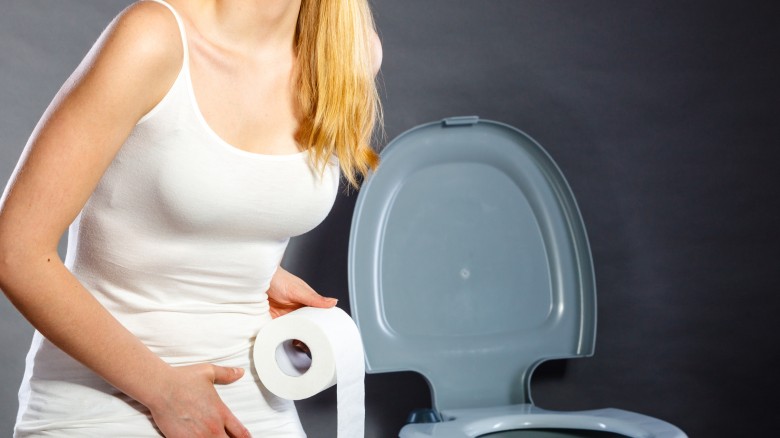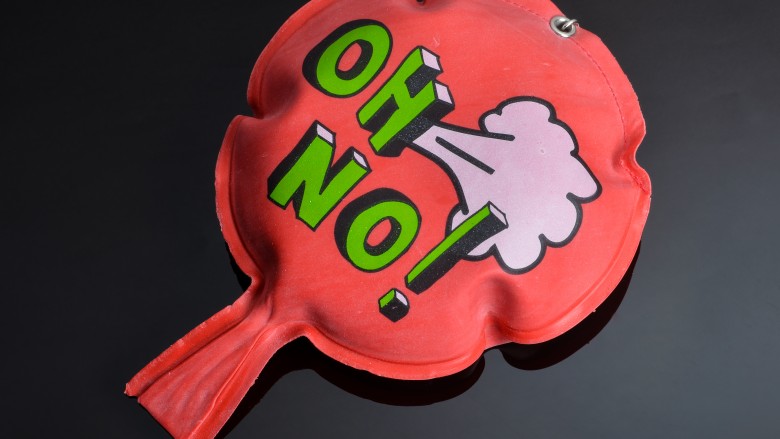Surprising Foods That Cause Gas
Beans, beans the magical fruit. The more you eat, the more you — everybody say it with me now — toot!
Gas or being a little gassy isn't the worst thing in the world. It may be unpleasant, and a little awkward in social situations, but it's just one of our natural bodily functions. Most people don't enjoy being gassy, especially when they're in public. Generally speaking, gas isn't the worst thing in the world to have, although it might seem like it at the time. If you want to avoid any embarrassing and potentially stinky situations, you may want to avoid some of these foods before a night out.
Cruciferous vegetables
Cruci-what? Cruciferous vegetables are veggies that are named for the four petals in their flowers that have a cross-like or crucifix shape.
Chelsey Amer, a private practice registered dietitian nutritionist in Manhattan and healthy food blogger at CitNutritionally.com, said that while they may be great for your health, veggies like kale, broccoli, cauliflower, and brussels sprouts may cause more stomach upset if you overdo it at first. She told me that this is because "these vegetables are high in fiber, and the bacteria in your colon eat up these undigested particles, producing gas as a byproduct."
So, for example, if you want to start eating healthier by introducing more vegetables to your diet, you might want to consult a nutritionist if you're afraid that doing so might make you gassy.
Not enough water with high fiber cereal
This food may not be a total surprise, but high fiber cereals, as well as other high fiber foods can cause gas. According to Amer, this is because there are certain fibers that the human gastrointestinal tract has a hard time digesting. This can cause gas.
However, did you know that staying hydrated can keep you from being gassy when you eat a lot of fiber? "Whenever I have a client who starts eating a high fiber diet I expect some gas because you're giving your intestines more work to do," says Amer. "It is important to drink enough water to help move high fiber foods through your digestive system and reduce some of the gassiness than may ensue at first."
High fructose foods
You may be surprised to know that certain fruits and vegetables can also cause gas. "High fructose foods such as onions, artichokes, pears, and some other fruits may cause gas if you have trouble digesting them as well," said Amer. "Fructose is a fermentable carbohydrate that causes distress in some individuals."
Lisa Cohn, Registered Dietitian at Park Avenue Nutrition, said that these, as well as other foods like dried fruits, prunes, dates, and figs have a laxative effect. "This effect is also associated with gas."
Watch what you drink
Health professionals advise drinking water in general, and especially when you're eating a lot of fiber. However, while water may be good for your digestive system, other liquids may not be. According to Cohn, beverages like coffee, which "tends to have a laxative effect" can make you gassy. "Other drinks like beer, as well as diet soda and tea, when containing sugar substitutes like sorbitol, xylitol, and mannitol can also cause excess gas." If you think that these beverages might be making you gassy, a good tip, she said, is to stop drinking them for a while to see if that relieves the gassiness.
Dairy
"Many people have difficulty breaking down the milk, sugar, and lactose in dairy products, resulting in gas production," said Cohn. "These dairy products can include cheeses, yogurts, and sauces."
If dairy makes you gassy, Viktoriya and Oksana Gruzdyn, nutritionists and PhD students specializing in anti-aging lifestyle and digestion, said that this may indicate that you are lactose intolerant and have a shortage or absence of an enzyme called lactase. If you think that eating dairy is making you especially gassy, or upsetting your stomach, it might be time to pay your doctor a visit to make sure you aren't lactose intolerant.
You don't have to quit eating foods that make you gassy
If you're a foodie or just someone who enjoys a variety of different foods, avoiding certain things to prevent yourself from getting gassy might not be an appealing option.
Cohn said that depending on the food, there are things you can do to prevent yourself from being gassy, even if the food is known to cause gas. Preparing foods a certain way can decrease the likelihood they'll make you gassy. "For beans," she said, "adding vinegar or lemon juice can help break down the starches we cannot." Just make sure to cook them well or until soft. For cruciferous vegetables such as broccoli, she told me that you can use the same method as used for cooking beans to prevent them from making you gassy. Another tip, she said, is to remove the lid when cooking sulfur-containing vegetables like cauliflower, because this can help reduce gassiness.
Avoiding getting gassy
If you're anxious about being gassy in general, there are ways to avoid it. Dr. Natasha Sandy, celebrity dermatologist and wellness expert, said that there are quite a few things you can do to prevent potentially embarrassing scenarios. She told me that there are digestive enzymes supplements you can take to improve your digestive system and prevent gas. "You can also take Beano, reduce the amount of food you swallow by taking smaller bites, and swallow your food slowly."
Before taking anti-gas medications, you should also consider your overall health, and if your gassiness is increasing or decreasing. Talk with a dietitian as they may have some very useful information for you. For example, "if you're experiencing a lot of gassiness, try checking your medicines as they may be creating the problem," said Cohn. "Check your supplements and smoothie ingredients as well."
It might not be something you ate
Sometimes being gassy is caused by more than just eating certain foods. Dr. Rachel Pauls, a surgeon and maker of Rachel Pauls Happy Bars, said that excessive gassiness could be a symptom of a more serious problem. "Irritable bowel syndrome, or IBS, is a disorder that affects the large intestine," she said. "It afflicts 15 percent of Americans." Some of the symptoms of IBS include, bloating, diarrhea, constipation, and of course, gas.
Dr. Sandy said that aside from IBS, excess gas production could also be an indication of other problems like Crohn's, ulcerative colitis, celiac disease, gluten sensitivity, leaky gut, and anxiety. This is why she said it's very important to see a doctor if you think that your symptoms feel out of the ordinary.
It's just gas
Some people have had mortifiying experiences with farts. While they can be embarrassing, and frankly a little stinky, you should keep in mind that gas isn't the most terrible thing that could happen.
If constant and bad gas is a persistent thing in your life, it may be a sign of potential health issues, and in that case, you should definitely see a physician. Otherwise, the best remedy to a little bit of gassiness is just to have a good sense of humor about it. It happens to everyone!

